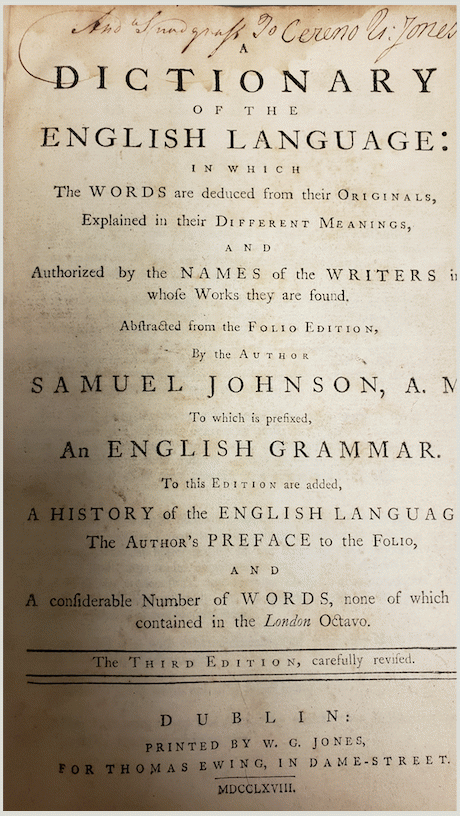Are you mancipated? That's how I started this article title. But then I changed it to 'How are you mancipated?'
Now, you may be thinking that I mean Emancipated. But no. I mean to use the word mancipated, without the E, the word which shows up as a misspelling in my spell checker and which is not translatable by google or Microsoft translation apps.
I think you ARE mancipated. But for you to understand what I mean, you'll need to understand the word. So, here's how I got to it.
I was browsing through one of the hundreds of antiquarian books I've acquired over the years. In this case, a 1768 third edition of one of the first English Language dictionaries-- The Johnson Dictionary.
It can be entertaining and enlightening to look up the way words were defined 252 years ago. For example, the definition of electricity is "an interesting property of amber."
I decided to look up the word slave. Here's what came up.
Note that back then, the letter S was printed to look like an F. So the definition of slave is: "One mancipated to a master; not a freeman; a dependant.
The word manicipated caught my attention. It was a word I didn't recognize. So I looked it up in the same dictionary and here's what came up:
the definition of the verb "mancipate" is: To enslave; to bind; to tie.
The definition of 'mancipation' is: Slavery, involuntary obligation.
That got me thinking about how today, in this world, we are bound to and tied to so many different elements of our culture. We are 'mancipated' to a world where almost all of us are dependent upon major corporations to get food, to keep the lights on, to warm our homes, to clothe and feed ourselves. We are mancipated to the media to keep us aware of what is going on. We are mancipated to employers so we can afford access to healthcare. We are mancipated to employers so we can secure the resources to eat, have shelter, clothing, heat, etc.
Now this little exercise in language and words started with my search for amusement in a quarter millennia old book. I wanted to see how archaic ideas translate in modern day. Instead, Samuel Johnson's dictionary led me to think about an old, not longer used idea in a new way.
(Note: You can view every article as one long page if you sign up as an Advocate Member, or higher).








